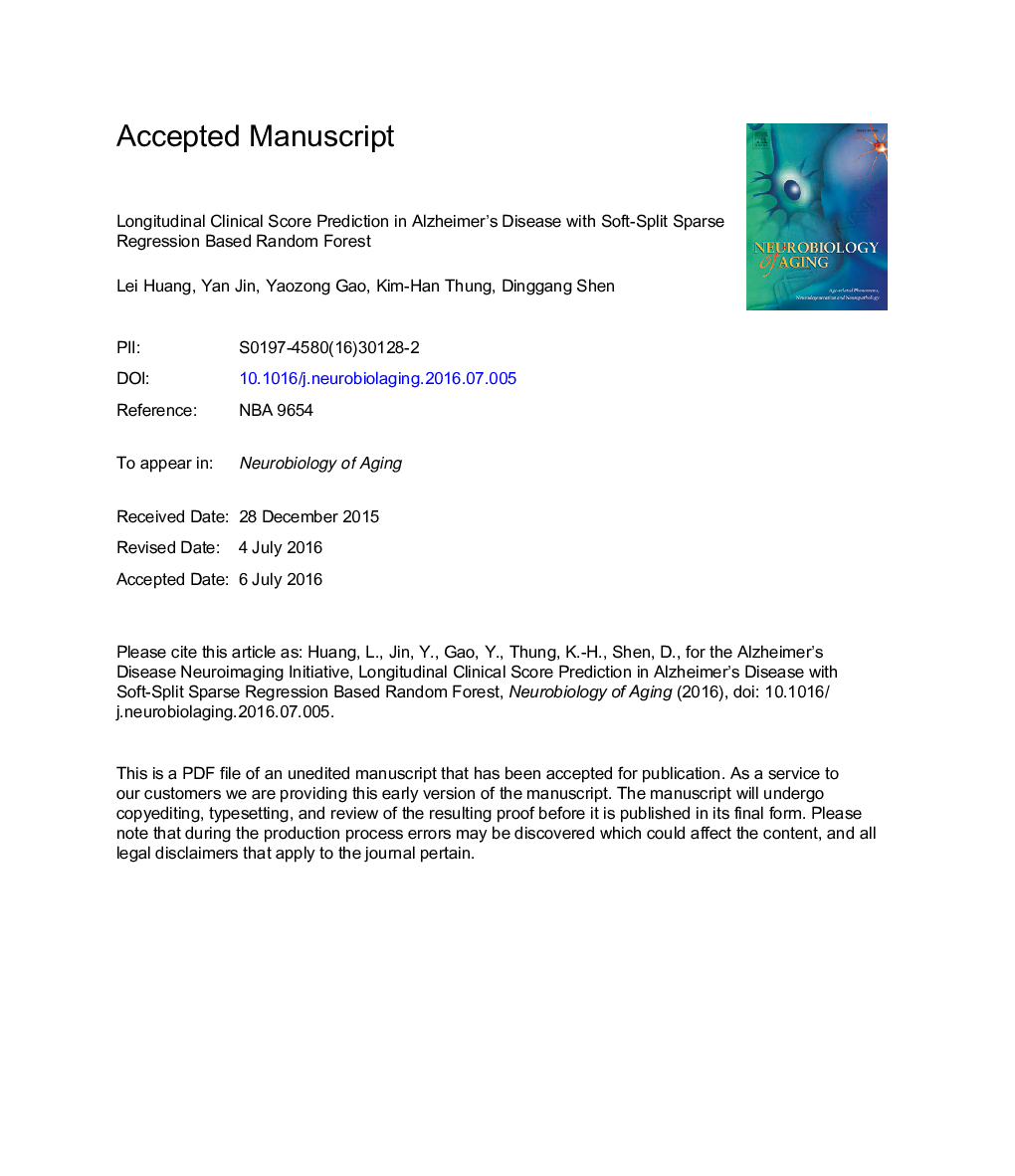| Article ID | Journal | Published Year | Pages | File Type |
|---|---|---|---|---|
| 6803363 | Neurobiology of Aging | 2016 | 37 Pages |
Abstract
Alzheimer's disease (AD) is an irreversible neurodegenerative disease and affects a large population in the world. Cognitive scores at multiple time points can be reliably used to evaluate the progression of the disease clinically. In recent studies, machine learning techniques have shown promising results on the prediction of AD clinical scores. However, there are multiple limitations in the current models such as linearity assumption and missing data exclusion. Here, we present a nonlinear supervised sparse regression-based random forest (RF) framework to predict a variety of longitudinal AD clinical scores. Furthermore, we propose a soft-split technique to assign probabilistic paths to a test sample in RF for more accurate predictions. In order to benefit from the longitudinal scores in the study, unlike the previous studies that often removed the subjects with missing scores, we first estimate those missing scores with our proposed soft-split sparse regression-based RF and then utilize those estimated longitudinal scores at all the previous time points to predict the scores at the next time point. The experiment results demonstrate that our proposed method is superior to the traditional RF and outperforms other state-of-art regression models. Our method can also be extended to be a general regression framework to predict other disease scores.
Related Topics
Life Sciences
Biochemistry, Genetics and Molecular Biology
Ageing
Authors
Lei Huang, Yan Jin, Yaozong Gao, Kim-Han Thung, Dinggang Shen, Alzheimer's Disease Neuroimaging Initiative Alzheimer's Disease Neuroimaging Initiative,
